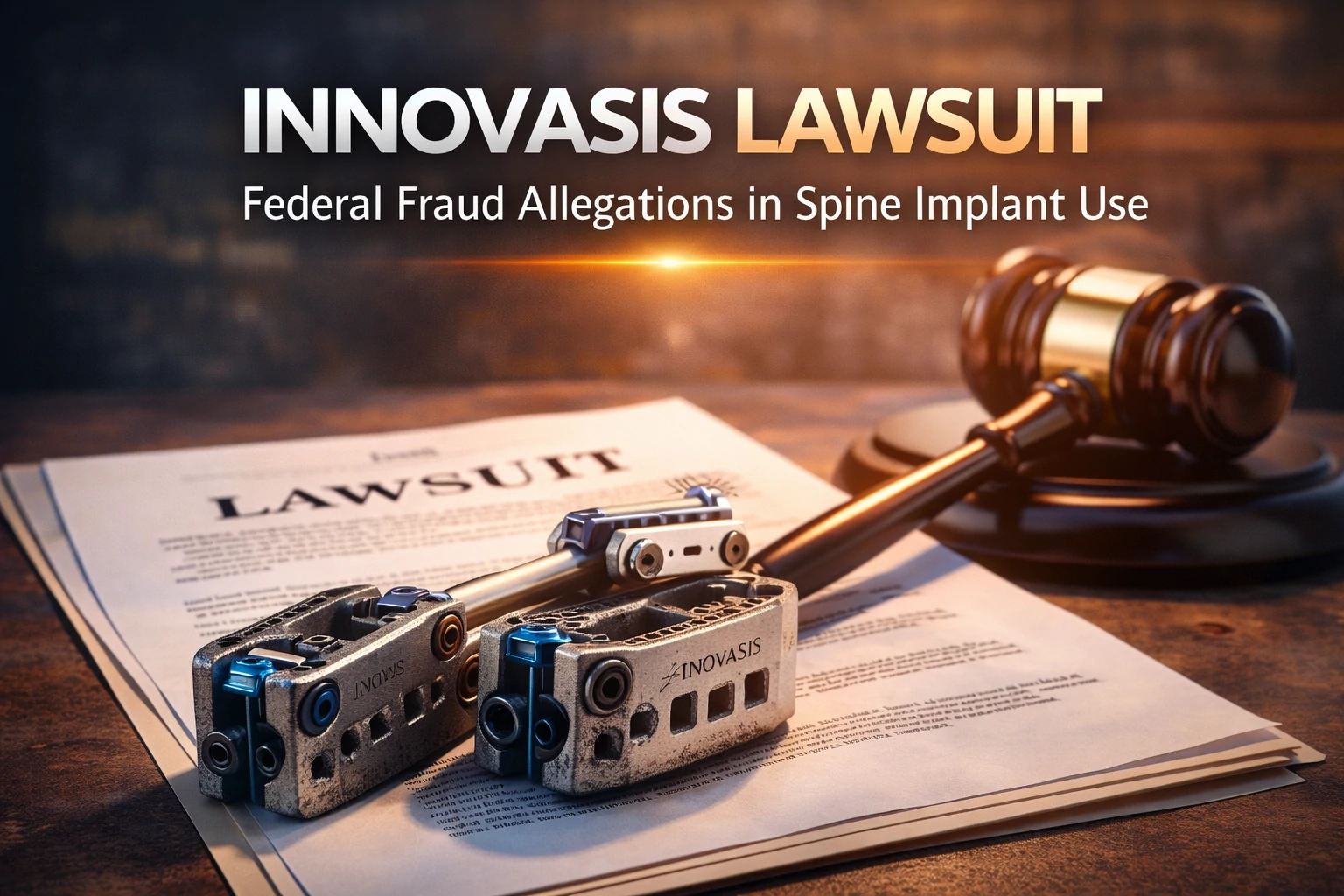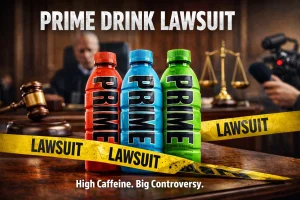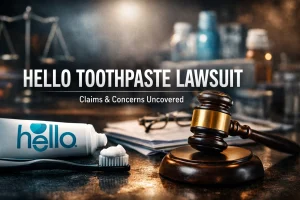The healthcare system runs on trust. It also depends on clear rules and safe tools. When a company in this space faces a lawsuit, people want to know what went wrong. Innovasis now stands in that spotlight. The company makes spinal implants used in surgeries across the country.
This lawsuit raises hard questions. It focuses on how Innovasis did business and what that means for patients, doctors, and public health programs. The claims suggest money may have influenced medical choices. That concern has led to public debate and legal action.
Hospitals use Innovasis products to treat back problems and spine injuries. These tools play a role in serious care. When news broke about the lawsuit, many people asked the same question, were those tools chosen for the right reasons?
This article explains the case in clear terms. It looks at the claims, why they matter, and what could happen next. Each part helps you understand the case without legal jargon.
Who Is Innovasis?
Innovasis is a medical device company in Utah. It makes spinal implants and tools used in surgery. These products help doctors fix injuries, treat spine problems, and support damaged bones. Surgeons across the country use Innovasis devices during operations.
The company presents its products as safe and effective. It works with hospitals, clinics, and doctors. Innovasis also runs programs to teach surgeons how to use its tools. This puts the company in a strong position within the spine care industry.
Because its work deals with serious health needs, the lawsuit has raised concern. Patients trust hospitals to pick tools based on care, not profit. If payments or perks influenced those choices, the results could hurt trust. The lawsuit focuses on that concern.
Claims Raised in the Case
The lawsuit also claims Innovasis caused false billing to Medicare and Medicaid. These programs pay for healthcare. If a doctor picked a product because of a reward and the program paid for it, the claim may be illegal. This involves the False Claims Act, which prevents fraud against the government.
The lawsuit says Innovasis created a system that pushed doctors toward its devices. The company allegedly offered money, travel, or services. These incentives may have looked like support, but they could break the law. The case is now active in court.
The False Claims Act helps the government stop fraud in public spending. It allows private people, often called whistleblowers, to bring cases when they see wrongdoing. If the case leads to a fine or settlement, those people may receive part of the money.
In healthcare, this law is often used when companies lie on billing forms or offer illegal rewards. The Innovasis case fits into this category. If a reward caused a doctor to choose one product over another, and the government paid for that care, then the billing could be false.
The law sets large penalties. It also sends a strong message. Companies must follow rules. Doctors must make choices based on patient care, not payment. The court will decide if Innovasis broke these rules.
What Whistleblowers Reported
The lawsuit began because whistleblowers came forward. These are people who worked inside or near the company. They said Innovasis offered rewards that were not allowed. They shared details with federal investigators.
Whistleblowers help uncover hidden actions. In many cases, they provide key facts and proof. The law protects them from harm. It also gives them a share of any money recovered. This creates a reason for people to speak up when they see something wrong.
In the Innovasis case, the whistleblowers gave documents and reports. They claimed that the company pushed sales through improper means. This triggered the lawsuit. Without them, the case might never have reached the court.
The Company’s Legal Response
Innovasis has denied the claims. The company says it followed the law and did not offer illegal rewards. It says its business model is fair and supports doctors and patients. Innovasis plans to defend itself in court.
Many companies take this path. They deny fault and explain their actions. Some cases end in settlement. Others go to trial. In this case, Innovasis continues to sell its products and operate as usual. The court will decide what is true.
The legal process takes time. Until a ruling comes, the facts remain in dispute. Both sides will present their case, and the court will review all the evidence.
Why This Case Matters
This lawsuit affects more than one company. It raises questions about how care choices are made. Patients trust that doctors act in their best interest. If money changes that, it can shake public confidence.
Hospitals also face pressure. They must choose safe, cost-effective tools. If a supplier offers rewards, it may cloud good judgment. This is why the law steps in. The rules protect both patients and public health money.
The Innovasis case may also change how other companies act. It could lead to more audits, better training, and closer oversight. It reminds everyone in healthcare to follow the rules.
You may also explore the Arias Agencies Lawsuit.
Possible Outcomes Ahead
The court may find Innovasis guilty. If that happens, the company could face large fines. It may also have to change how it works with doctors. Some companies sign agreements to follow strict rules in the future.
The case may also settle. That means Innovasis would agree to pay money without admitting guilt. This is common in cases under the False Claims Act. It ends the dispute and avoids a long trial.
No matter how the case ends, it sends a message. Business practices in healthcare must follow the law. People are watching. Companies that cross the line face real risk.
This lawsuit does not claim that Innovasis devices harmed patients. But it does raise concern about the system. If rewards shaped care, that could affect results. Even if no one was hurt, the trust between doctors and patients could suffer.
Doctors may now review their own ties with companies. Hospitals may look at how they approve products. These steps help rebuild trust. They also reduce the risk of future claims.
In the end, the goal is clear care. Choices must focus on health, not money. This case shines light on where those lines may blur.
Conclusion
The Innovasis lawsuit brings attention to serious legal and moral issues. It shows how payment deals, even if small, can raise big concerns. The courts will decide what happened, but the case already teaches a lesson.
Patients expect fairness. Doctors need space to choose what works best. Companies must follow the law in every deal and action. The healthcare system only works when all parts stay honest.
This case may end in court or in a deal. Either way, it adds to the public view of how medicine and money meet. That makes it more than just a lawsuit. It becomes a warning, a lesson, and a step toward better care.
Q. What is this lawsuit about?
The case says Innovasis gave payments or gifts to doctors who used its spine products. That could be a form of illegal reward.
Q. Did the case report patient harm?
The lawsuit does not say that patients were harmed. It focuses on doctor choices and billing.
Q. Who started the lawsuit?
Whistleblowers who knew the company’s actions brought the case. They shared facts with the government.
Q. What law is involved?
The case uses the False Claims Act. This law stops fraud in public health billing.
Q. How did Innovasis respond?
Innovasis denied the claims. It plans to fight the case and show it followed the law.
Readers interested in other product lawsuits may also want to learn about the Lola Tampons Lawsuit.
Disclaimer:
This article gives general information about the Innovasis lawsuit. It is not legal advice. Every case is different. Speak with a licensed attorney if you need guidance on your specific situation.




